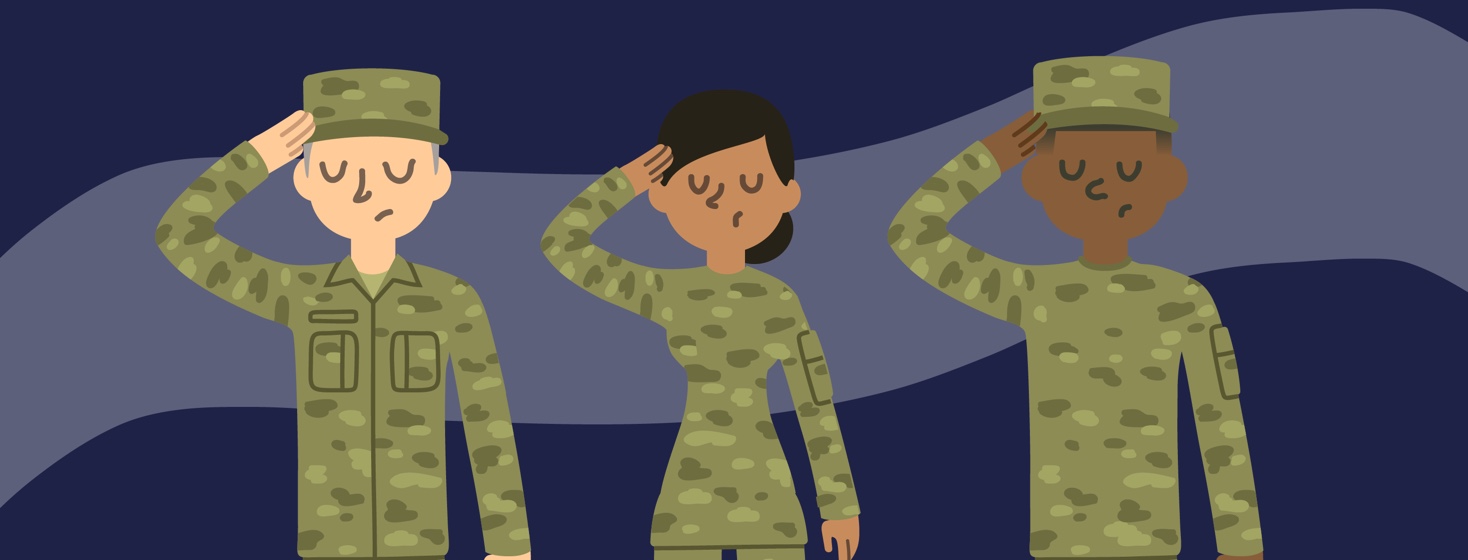How Hepatitis C Affects Veterans and How Veterans Can Get Treatment
Veterans are considered a high-risk group for having hepatitis C. There are various reasons why veterans may be at an increased risk of having the virus, and different ways individuals in this group can seek treatment if they are affected.
The connection between hepatitis C and veterans
Research suggests that veterans receiving care through the Veterans Health Administration (VA) are more than twice as likely to have hepatitis C when compared to the general population.1-4 However, not all veterans receive care through the VA, and many veterans have not been tested for hepatitis C. This means that the number of veterans with hep C may be even larger than previously thought.
The reasons why the veteran population has a higher prevalence of hepatitis C are not well understood. However, some theories on veterans' increased exposure to the virus include:2,3
- Exposure to blood during combat
- Receiving transfusions before blood products were screened for hepatitis C
- Unsafe immunization techniques
- Large battle wounds
More research is needed to understand why veterans have a higher risk of hep C than the general population
Baby Boomers and hep C
The largest group affected by hepatitis C is the Baby Boomer generation, which includes people born between 1945 and 1965. Baby Boomers are five times more likely to have hepatitis C than any other generation because between 1945 and 1965, the virus was not well understood, and preventative measures were not regularly taken. Coincidentally, this generation is a group in which many veterans served in heavy combat wars, such as the Vietnam War, and may have been exposed to infected blood.2,3,5
The Veterans Health Administration
Because of veterans' increased risk of hep C, the VA has made it a priority to perform hep C screenings on as many veterans as possible who belong to this age group. In fact, the VA has the highest rate of this type of screening in the United States (when compared to any other large health care system): Nearly 84% of veterans in this group had been tested for hepatitis C.6 As a result of this increased awareness, the VA has treated more veterans than any other health care system in the U.S.6
Who does the VA treat?
As of mid-2018, the VA has announced that all veterans in VA care who have hepatitis C are eligible for treatment. In order to qualify for VA care, many veterans will first see their primary care provider, who will then refer them to their local VA. Once a veteran establishes care with their VA, VA staff will work to schedule appointments and coordinate treatment. Once a definitive diagnosis of hepatitis C is made by VA staff, the veteran is able to receive treatment through the VA.
The VA has treated over 110,000 individuals with oral antivirals between 2014 to 2018. These antivirals are prescribed based on individual health needs, not based cost or insurance issues.6
Another unique aspect of treatment through the VA is that they do not require a liver biopsy prior to treatment. There are also no minimum requirements when it comes to recent use of alcohol or drugs. Once an individual begins treatment through the VA, they are followed in the VA’s National Hepatitis C Clinical Case Registry. Despite efforts to screen and treat as many veterans as possible for hepatitis C, the VA has estimated that 15,000-20,000 veterans under VA care are still awaiting treatment or unable to complete treatment. Efforts are ongoing to increase the number of those starting and completing treatment, as well as to increase the number of veterans treated who are currently undiagnosed or outside of VA care.6

Join the conversation